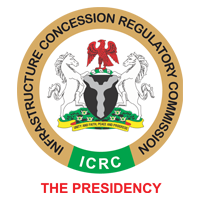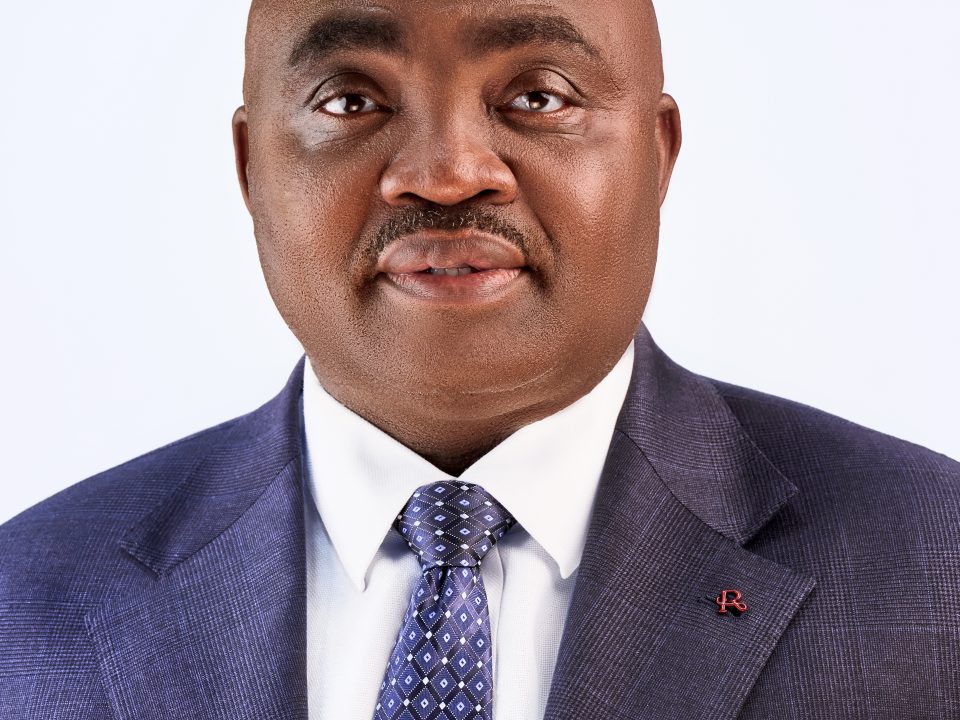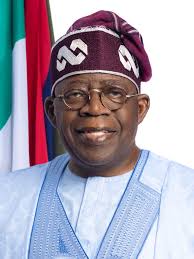THISDAY NEWSPAPER ANALYSIS: Bridging Nigeria’s Infrastructure Gap. 02-12-15
As Nigeria’s infrastructure needs continue to expand in the face of dwindling government revenue, there is a need for Nigeria to embrace financing of major infrastructure projects through public, private partnerships, writes Obinna Chima
The sharp drop in global oil prices, which has led to significant revenue shortfall in Nigeria, has remained a major concern to policy makers and a lot of Nigerians. Already, the outlook for oil prices remains weak. Of course, this means that the amount of funds available for capital project in the country would be negatively affected and may further widen the country’s infrastructure gap.
Undoubtedly, Nigeria’s infrastructure deficit had stymied its economic growth, restricted productivity and limited its competitiveness. The lack of critical infrastructure continues to impact negatively on the cost of doing business, investment, and capital inflow into the country.
It had been projected that the country needs to invest $10 billion annually over the next 10 years for it to significantly reduce its infrastructure deficit. Some of the sectors that require huge investments include power, housing and highways, railways, ports, airports, dams, bridges and tunnels, oil and gas pipelines, water and sanitation and telecommunication.
Infrastructure refers to those physical structures that facilitate the production of goods and services, without themselves being part of the production process. Often referred to as the ‘stock of capital goods’, they include highways, airports, harbours, utility production and distributive systems, water and sewer systems, communication networks and energy networks.
According to a World Development Report, a one per cent increase in the stock of infrastructure is associated with a one per cent increase in the Gross Domestic Product across all countries. Infrastructure thus plays a critical role in promoting economic growth through enhancing productivity, improving competitiveness, reducing poverty, linking people and organisations together through telecommunications and contributing to environmental sustainability.
Therefore, given the current challenge, the long-term issue of funding and the option (s) for financing of infrastructure are becoming hugely important questions for policy makers and governments.
However, nowadays, public-private partnerships (PPPs) are increasingly considered to be an attractive development instrument and are often being used in development programmes globally.
PPPs are increasingly envisaged as an attractive proposition for involving the private sector in infrastructure development. It is generically known as a form of cooperation between government and the private sector which sometimes also involves voluntary organisations (NGOs, trade unions) or knowledge institutes – that agree to work together to reach a common goals or carry out a specific task, while jointly assuming the risks and responsibilities and sharing resources and competences.
To this end, experts have advised the new Minister of Power, Works and Housing, Mr. Babatunde Fashola, to explore the advantages in PPPs, as he did in Lagos State, when he was the governor, to drive infrastructural development at the national level. They also stressed the need for such initiative considering the significant drop in the country’s revenue.
According to the KPMG Professional Services, PPPs involves “the design, build, finance and operation, by the private sector, of assets and services that the government has traditionally procured and provided to the community and which have previously been funded by taxpayers. In return, the private sector generates revenue either from the levying of tariffs on users or the receipt of periodic service payments from the government over the life of the PPP agreement.”
According to the Director General, Infrastructure Concession Regulatory Commission of Nigeria (ICRC), Mr. Aminu Adamu Diko, PPPs are co-operative venture for the provision of infrastructure or services, built on the expertise of each partner that best meets clearly defined public needs, through the most appropriate allocation of resources, risks, and rewards.
“The public sector maintains ownership, oversight and quality assessment role, while the private sector is more closely involved in the actual delivery of the service or project. This has become the method of choice by governments throughout the world for the up-scaling of infrastructure and provision of goods and services for their economies.
“In industrialised economies, there is a growing privatisation of public services, undertaken through the establishment of public private partnerships. Besides filling the resource gap in project delivery and operation, PPP arrangements engender acceleration of project delivery, a faster implementation of projects, and reduced whole life costs of projects.
“It offers better risk allocation between public and private sectors, better and sustainable incentive to perform, engender accountability in fund utilisation, and improve the overall quality of service. Evidence also abound that it leads to the generation of additional revenue and overall value for money for the entire economy,” Diko added.
Indeed, spending on infrastructure offers a lot of benefits and, if wisely directed, such investment can deliver improved quality of life to the affected citizenry. Infrastructure is important for social and economic development. But due to the policy errors of the past, the Nigerian economy has continued to suffer from fundamental structural defects and remained in a persistent state of stagnation mainly due to inadequate infrastructure. The huge earnings from the enormous crude oil deposits are monetised giving rise to unprecedented ostentatious lifestyle and unequal distribution of income.
Structure of PPP
Under a PPP arrangement, debt funders are providers of a loan or other debt finance to a private Partner with respect to a project. On the other hand, equity funders are private investors who subscribe for equity in the private partner. A public sector partner is the government agency or institution that initiates a PPP contract. A private partner on the other hand is the private sector partner selected through a competitive procurement process to provide the contractual service to the public partner. The private partner is also known as the project company, consortium, concessionaire or contractor. However, there is need to always ensure that trade unions and NGOs being critical stakeholders in the economy, are always carried along for effective operation of such agreement, even though the main actors are the private entity and the public entity, with ICRC as the umpire.
Nigeria’s PPP Framework
The Infrastructure Concession Regulatory Commission was inaugurated in November 2008, as a way of addressing the huge infrastructure deficit in Nigeria and the decrepit state of our existing infrastructure. The ICRC Act 2005 also empowers federal ministries, departments and agencies (MDAs) to utilise PPPs as procurement vehicle of choice, where suitable, to rapidly turn around the country’s infrastructure insufficiency. The Act envisages the ICRC to serve as the primary driver agency to catalyse and facilitate engagement of the private sector by MDAs of the federal government in initiating, developing and implementing PPP projects in a fit-for-purpose, transparent, competitive and sustainable manner that would ensure value for money for the Nigeria economy, while putting in place world-class infrastructure for use by Nigerians.
Nonetheless, the activities of the agency has continued to be weakened by funding constraints as decline in budgetary allocation constrains the operations of the Commission; unstable government policies – tolling/billing; some weakness in the ICRC Act that needs to be strengthened; dearth of institutional capacity – World Bank PPP support loan to be effectively utilised, and conflict in laws.
To the Vice President of Bank Directors Association of Nigeria, Mrs. Foluke Abdulrazaq, in order to accelerate the country’s growth, there is need for commercial banks to also support more PPP projects. According to her, as a result of the move by governments to revamp the economy through private sector participation, banks would have an increasing role to play in the funding of projects.
“Nigerian banks have a cumulative balance sheet of over N7 trillion invested in this economy. We expect that a fair share of future funding requirement will come in the form of PPP proposals from both government and private sector operators.
“Nigerian banks are already assessing proposals from private sector operators, who are exploring funding options from local and international financial institutions,” Abdulrazaq explained.
Also, in order for more PPPs to emerge in Nigeria and other countries in the continent, the African Development Bank (AfDb) has urged countries to improve the business environment. At present serious constraints exist in many countries. These AfDB also acknowledged include: inadequate legal and regulatory framework for PPPs; lack of technical skills to manage PPP programmes and projects; unfavourable investor perception of country risk, Africa’s limited role in global trade and investment, small market size, limited infrastructure and limited financial markets.
Therefore, in view of the country’s quest to rapidly develop its pallid infrastructure and also attain its Vision 2020 goals, there is need to increasingly tap into the opportunities in such initiative. So, with a clear long term strategic and financing framework, PPPs can provide the needed resources to help fill the gap in Nigeria’s infrastructure. Having regard to the ICRC’s increasing regulatory portfolio, direct the Budget Office to give the Commission a life line to sustain operations and also to improve the Commission’s Budget allocation for 2016 budget and approve and support the amendment of the ICRC Act to make it comprehensive for PPPs.
In addition, the presidency needs to approve that the problematic legacy concessions such as the TBS, Lagos-Ibadan expressway and the MMA2 airport be referred to the Committee set up by the president to review port concessions and also ensure that MDAs are made to recognise that the ICRC is the government ’s foremost authority on PPP transactions.


